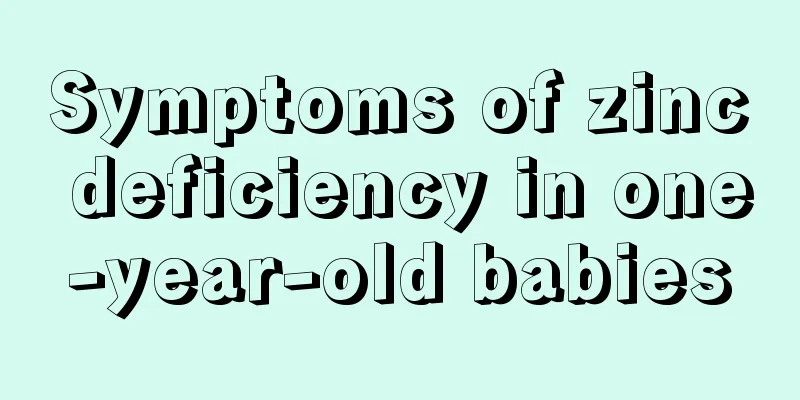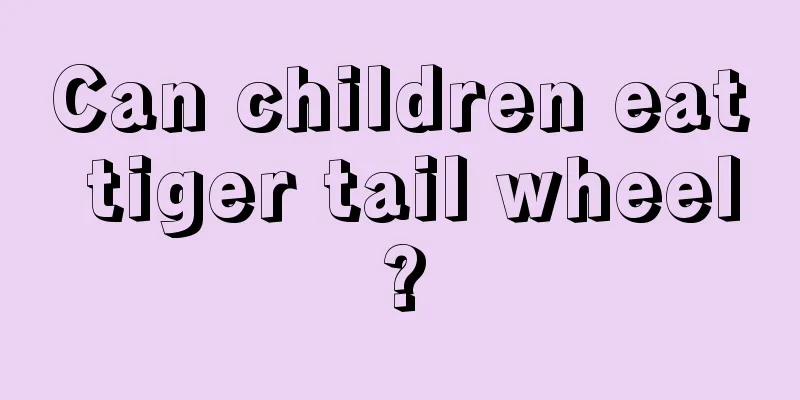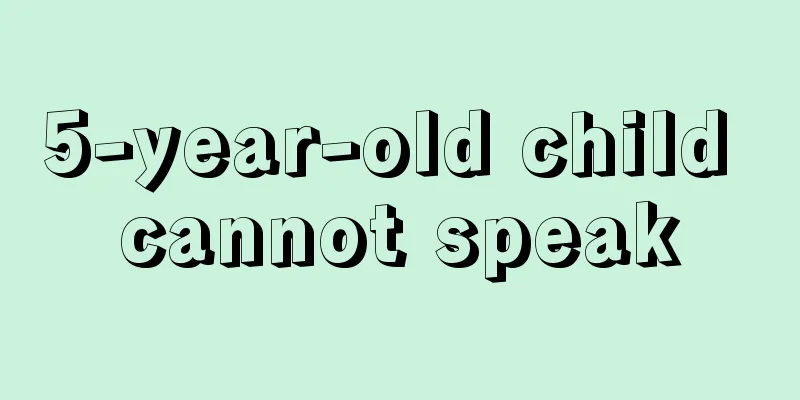Symptoms of zinc deficiency in one-year-old babies

|
The health of a baby is affected by many factors, among which nutritional factors are the most important, because the baby's growth must obtain necessary substances through food to help growth. Among them, calcium, iron, zinc and other elements are the most important. The lack of any one of them will have an extremely adverse effect on the baby's physical development. Let's take a look at the symptoms of zinc deficiency in one-year-old babies. I hope everyone can understand it. First, reduced taste When a child is zinc deficient, the tongue mucosa will not function normally and the sense of taste will decrease. If the child has a poor sense of taste, he or she will show symptoms such as anorexia and loss of appetite. Second, slow growth Zinc is related to the activity of more than 80 enzymes in the body, and the activity of enzymes is the key to cell metabolism in children. When a child is zinc deficient, the body's metabolic function will become abnormal, resulting in slow growth. Third, skin problems Children who are zinc deficient are more likely to develop some skin diseases, such as oral ulcers, shedding of tongue mucosa, etc. Older children may also develop acne. Fourth, weak immunity Zinc deficiency causes children's immunity to decline, making their bodies more susceptible to infection by bacteria. When children are zinc deficient, they are more likely to suffer from respiratory infections when the seasons change. Fifth, low intelligence Zinc can promote the synthesis of protein and DHA in children's brain cells. When a child lacks zinc, his intelligence will be lower than that of normal children. What should babies eat to supplement zinc? When it comes to zinc supplementation for babies, the first choice is food supplementation, which means eating more foods rich in zinc. When dietary supplements cannot meet the requirement, zinc can be supplemented through medicines, but the medicines should be taken under the guidance of a doctor to avoid trace element poisoning that harms health. Foods high in zinc include beef, lamb, lean pork, animal liver, peanuts, soybeans, carrots, oysters, etc. From this we can see that children who are zinc deficient need to eat more meat. This statement has a certain basis. According to measurements, the zinc content in animal foods is higher than that in plant foods, and the amino acids produced after the decomposition of animal protein can promote the absorption of zinc. The absorption rate is generally around 50%. The zinc contained in plant foods can combine with plant acid and cellulose to form water-insoluble compounds, thereby hindering human absorption. The absorption rate is only around 20%. |
<<: Symptoms of hydrocele in children
>>: What vaccines should a 2-month-old baby get?
Recommend
Which department should I go to for breast development in children?
In our lives, many children are particularly pron...
What to do if a four-year-old is constipated
Many babies don’t like to drink water and eat lit...
What is the best time to supplement calcium for newborns?
We all know that the baby's growth has a part...
At what months can babies crawl?
Many mothers observe their children's various...
What should children eat to grow taller quickly?
Nowadays, children are the pride of every family ...
What to do if your baby moves around while sleeping
It is very common for babies to move around in th...
One-year-old baby has a lot of phlegm and a hoarse throat
The symptoms of one-year-old babies with excessiv...
What to do if your baby is allergic to tomatoes
The baby grows up day by day. After six months, b...
Do children with phimosis need surgery?
Generally speaking, phimosis in children already ...
What should I do if my child doesn't like doing homework?
Children's education issues give most parents...
What should I do if my 10-month-old child is constipated?
Many Chinese families choose to wean their childr...
What causes yellow teeth in children?
Once a child has health problems during the growt...
My baby has a lot of phlegm and coughs. What are the methods to expel the phlegm?
Infants and young children usually have poor immu...
What are the dangers of children eating snacks?
It is a common symptom for children to love snack...
How long does it take for a newborn to be able to swim?
Nowadays, newborns go out as soon as they are bor...









